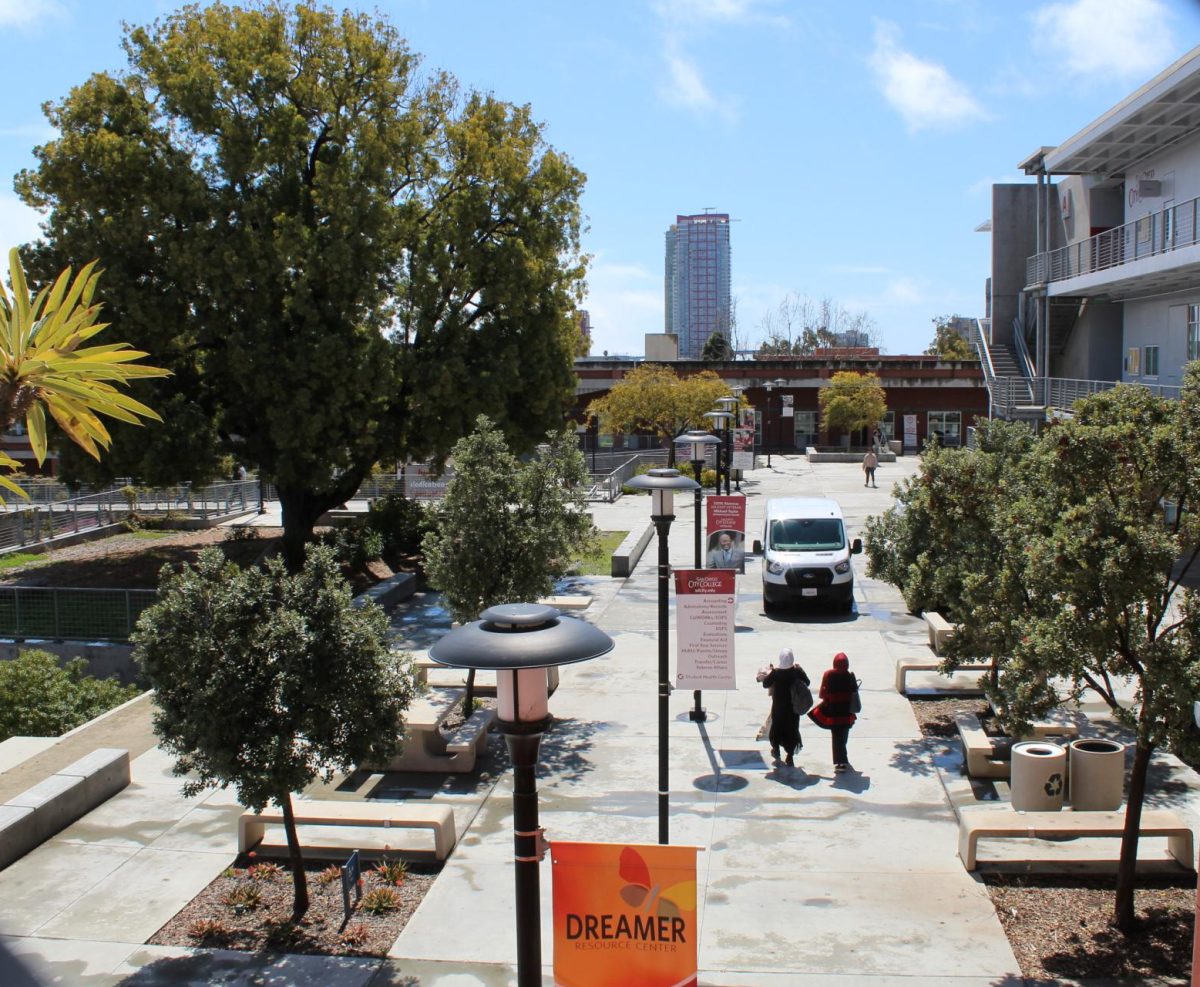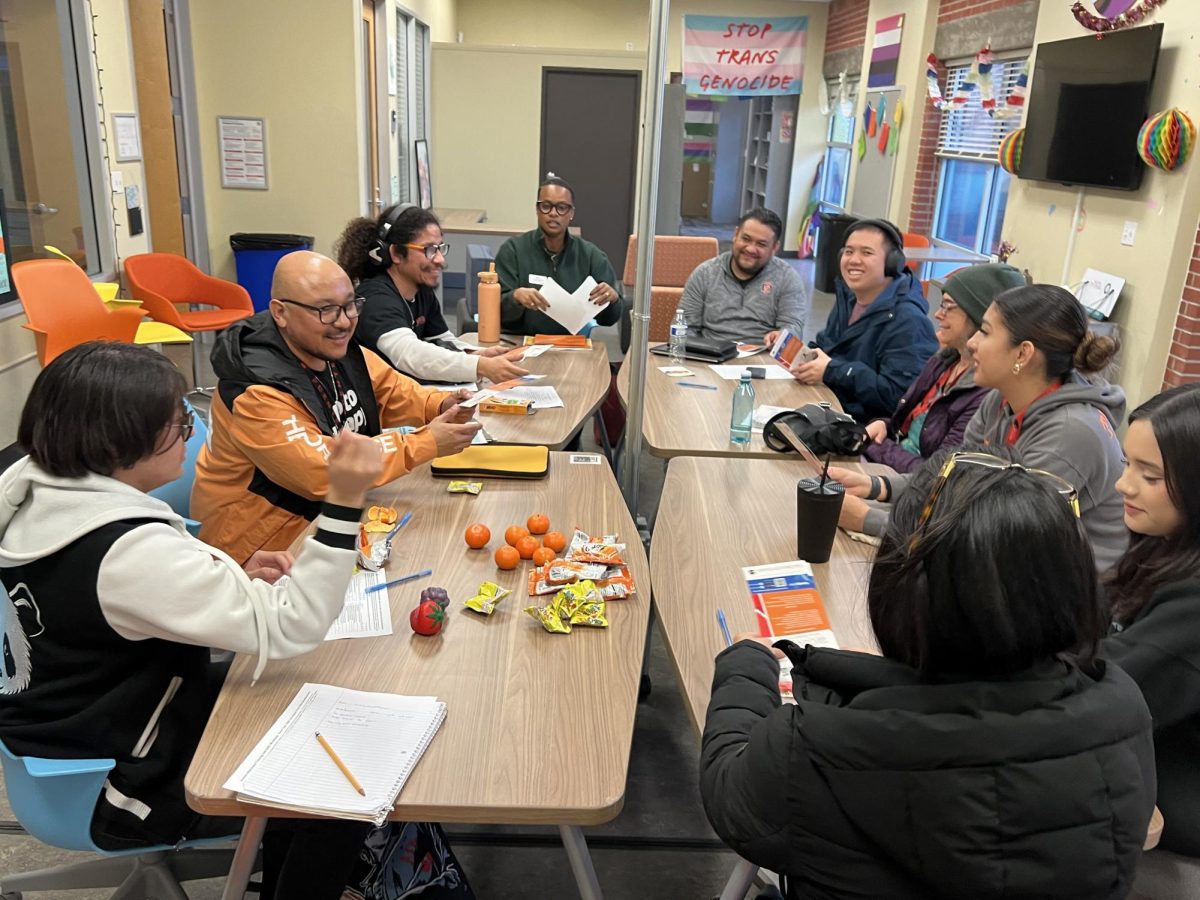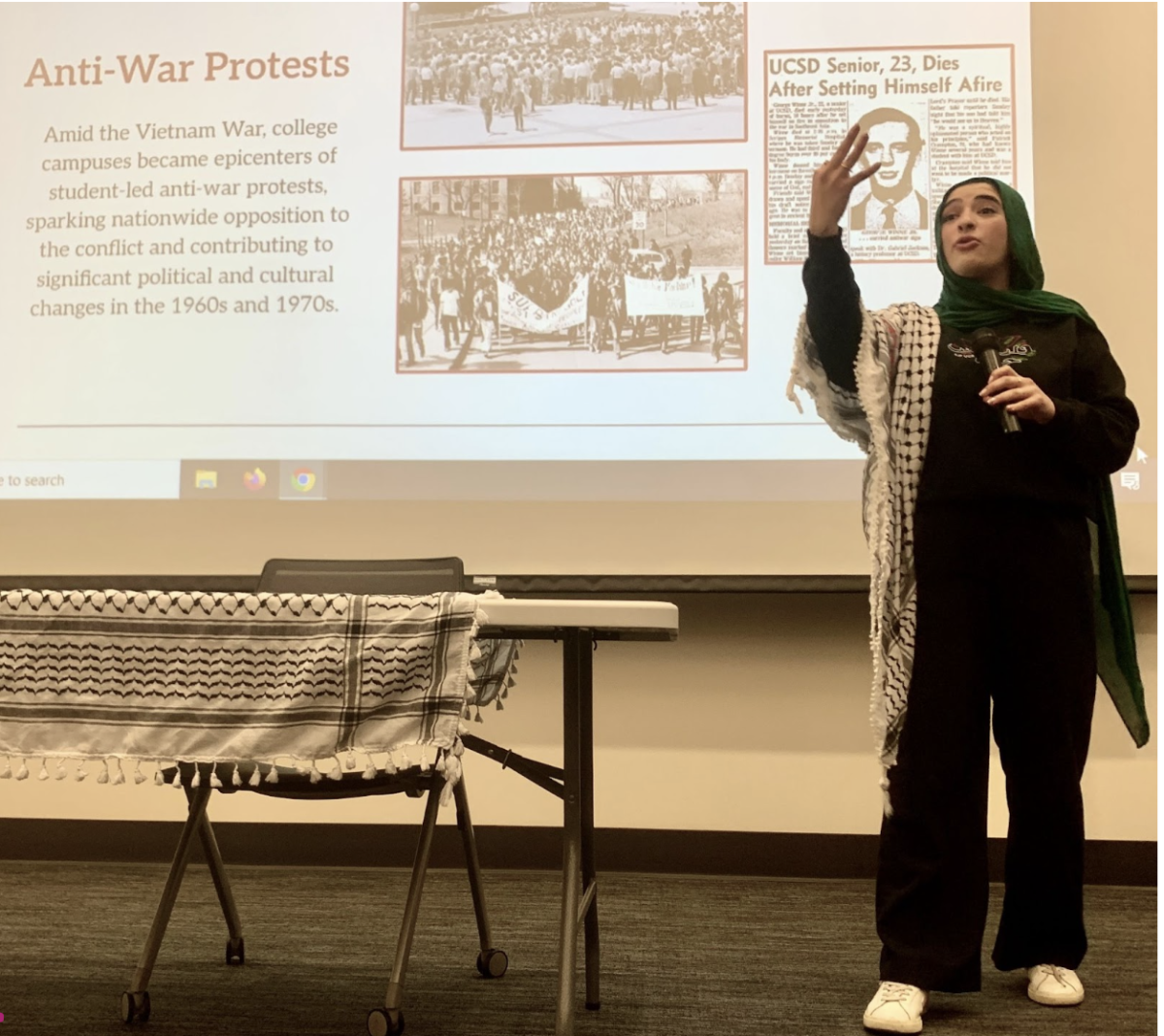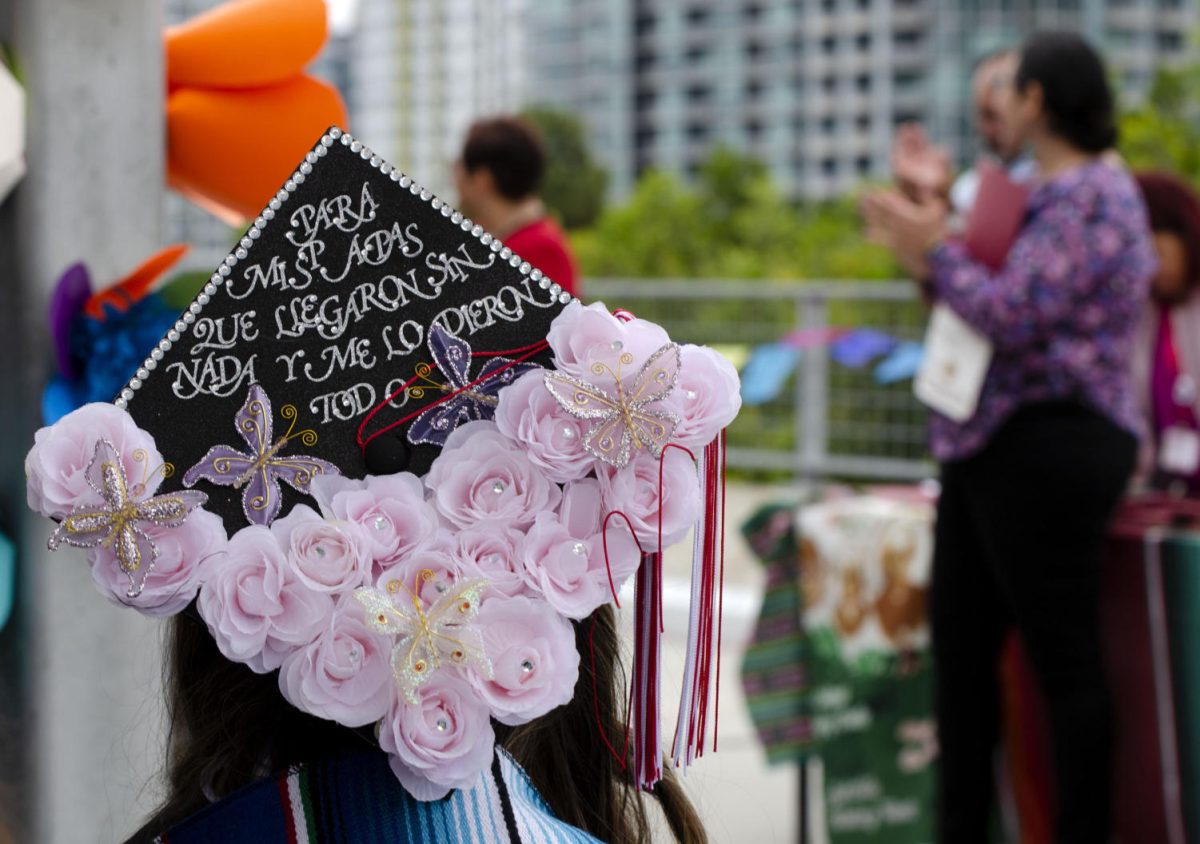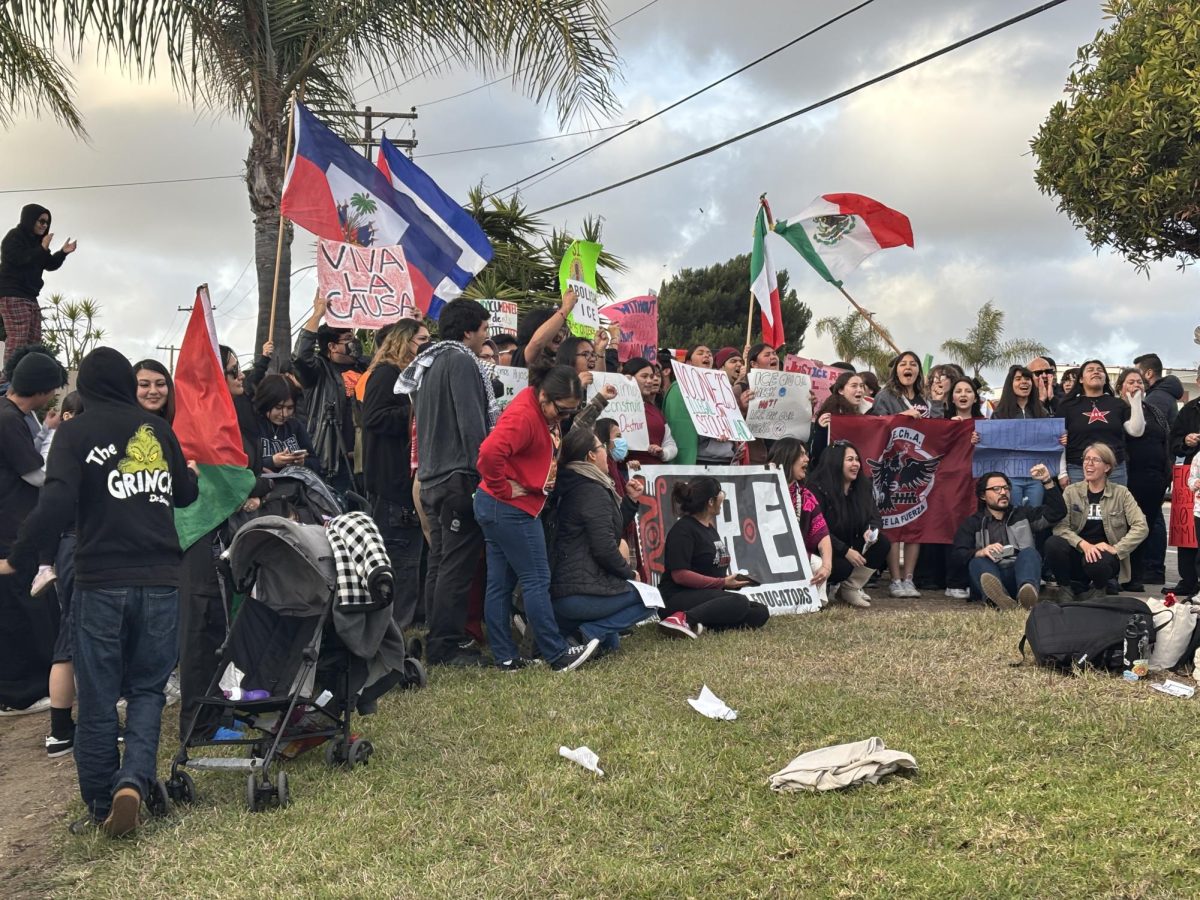San Diego City College campus has a new urban farm program that started this fall semester the farm is located in between the Seville theatre and the Learning resource center.
Karon Klipple is a mathematics professor, and co chair of the environmental stewardship committee, which is responsible for the recycling, program and many other green friendly programs on campus. Klipple’s most ambitious project of sustainability is the urban farm.
The farm is staffed by two part time “urban farmers” Paul Maschka and Julia Dashe who manage the farm’s daily operations and oversee and coordinate the four student interns who learn by doing
People often ask Maschka what he feeds his plants and why they are so green.
“The key is supplying them with sufficient nutrient rich compost,” compost is the food source for the microorganisms that make the food for the plants, “You’re just mimicking what happens naturally in the forest,” said Maschka.
Maschka points out that, “the agriculture business is the biggest industry overall in San Diego county, bigger than the defense industry and big business.”
They don’t teach agriculture here on campus in any capacity. Klipple and the urban farmers are doing something to change that.
Currently there are no classes available for the urban garden this semester, though they are making steps that will eventually turn into a full time program with classes “this program is going to grow there is no stopping it,” said Maschka.
Organic gardening is very different from conventional chemical based gardening. This particular farm on campus is modeled after a 3000 year old Chinese farming system feeding the plants with all natural compost materials which when broken down by micro organisms, feed the plants to grow into healthy organic fruits and vegetables. Unlike conventional chemical fertilizers this method doesn’t ruin and kill the compost and microorganisms that feed on it.
According to Maschka most southern californians are used to planting warm season crops in the summer such as corn, melons, squash, tomatoes, peppers etc. making the mistake of thinking the growing season is all done after harvest.
The great thing about the cool season is that there are a lot more options of things to grow than in the warm season.
In the past two weeks the urban farmers, their interns and volunteers have been gearing up for transition from the warm planting season into the cool planting season.
The next batch of cool weather crops that will be grown on the farm on campus will be kale, chard, and collards. Snap pees, beets, parsnips, cilantro, bok choy, and spinach to name a few
On Thursday Sept 26th at the school board meeting, the environmental stewardship committee made a presentation to the board and expressed to them some of their goals which were to “educate empower and implement meaningful change” to the school
Marley one of the student interns spoke to the school board about his experience thus far as an intern at the urban farm, ” lots of people are being exposed to something that they wouldn’t otherwise be exposed to we are really at the vanguard ”
Kim Lopez intern at the urban garden also spoke to the school board she “looks forward to the day when an eatable garden will bill be something that every body will be accustomed to when you eat high quality food it allows you to a obtain a high quality life as well, its directly involved and related.”
Other projects Karon Klipple and the urban farmers are working on include; diverting all of the kitchen prep waste to the organic farm to make compost, ensuring that farm land no longer requires chemical fertilizer and uses one third of the water that the lawn previously used, building a terraced food forest that will grow fruit trees, grapes vines, kiwi, passion vines and more.
” We invite all our faculty to make this an option for their service learning and as many students that are interested to apply for the internship program,” said Klipple.
The urban farmers are on the farm every Tues Thurs and sat from 8am to 12 pm they encourage help from volunteers and anyone that interested in learning more about organic farming.
Categories:
urban garden revised
September 23, 2008
Story continues below advertisement
Donate to City Times
Your donation will support the student journalists of San Diego City College. Your contribution will allow us to purchase equipment, cover the cost of training and travel to conferences, and fund student scholarships. Credit card donations are not tax deductible. Instead, those donations must be made by check. Please contact adviser Nicole Vargas for more information at nvargas@sdccd.edu.


